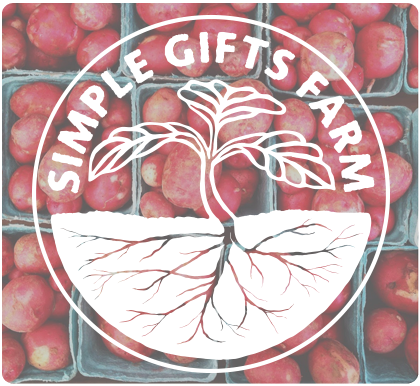We love being part of a community farm and connecting you all with our community food supply! You all are the reason we do what we do and we are so grateful for your support. We got a lot of great feedback from the survey and wanted to share with you some of what we heard and in some cases respond to the feedback.
Supporting the Farm
This was the number one reason that most people said they came to the farm, with 95% of respondents saying it was a reason to come to Simple Gifts. Wow! Thank you all for your support!
Questions about what items are limited vs. fill-your-bag vs. not in the share
We had some people say that they felt disappointed that “premium” vegetables were not included in the share or were always limited, so we thought we would explain why we included or didn’t include certain items. Salad greens are always limited to one bag per share, because they are so labor-intensive to harvest, wash and pack. The first few weeks of picking a new crop are usually limited until that crop comes in more fully. Things that we don’t harvest enough of so that everyone can get one are another category. And then crops that we buy from other farms at a premium are also sometimes limited or not a part of the share. All of this is to try to keep the price of the share affordable; at $31 a week for the 2019 season, the share is an incredible value, especially if you include even occasional use of the Pick-Your-Own Garden. The Fill-your-bag share gives you a great deal of flexibility, but if you want even more ability to pick and choose, we suggest the new Market Share that gives you complete control over what you get, and the 20% discount at the highest level of Market Share is comparable to that in the share.
Plastic packaging
We have been following, just as many of you do, the ongoing revelations about how damaging plastic is to our environment and health, and how the recent collapse of the plastic recycling market has brought that concern to the core. We thought we would share email responses that we sent to people this year about the plastic packaging at the farm.
About the milk in plastic bottles:
Thanks for your input and your passion around this issue. I hope you will appreciate as I describe below that we are not completely in control of our milk options.
We stopped carrying the glass-bottled milk from Ronnybrook Farm due to problems with the local distributor. We were repeatedly shipped milk that was close to the expration date and that went bad before we could sell it. In addition, the distributor did not deliver on a consistent schedule, and was not able to return the glass bottles to the dairy, which negates one of the positive aspects of glass bottles. The product was good, and we felt good about supporting the farm, but the issues with distribution were leading to an unworkable situation. We were excited to find the Bostrom Farm milk we are currently carrying because the milk is from a certified organic and 100% grassfed farm. Grassfed milk production has the potential to be a carbon-sequestering activity, due to the actively growing grass cover and the lack of tillage in the system. Grassfed milk also has been demonstrated to be a much healthier product. On all fronts, the milk from Bostrom Farm is closer aligned to what we believe in, with the exception of the plastic packaging. It is against the law to sell raw milk anywher but directly from the farm, so we are unable to carry Maple Valley milk in our store. In addition, Maple valley cows are raised in confinement, and fed conventional feed, a system that has a large carbon footprint, and results in a less healthy product.
There are several axes on which to measure which milk is in line with our values: organic vs. conventional, grassfed vs. confinement, glass vs. plastic packaging, and we also need to balance issues of distribution and logisitics. I will pass your comments on to Bostrom Farm and see if they would consider switching to glass bottles. I don’t know if that is a service their bottler offiers, but it doesn’t hurt to ask.
About the plastic bags for salad mix:
The concern that we have about shrinkage of the salad greens, which are our most labor-intensive and therefore expensive crop to produce, is a very real one and not a “line” or an “excuse.” We are in a very different situation than we were a few years ago when CSA members came over a short period of time and picked up greens before they had time to wilt. We are also in a very different situation than River Valley Coop, which goes through a quantity of produce at least an order of magnitude larger than we do, and has 4-5 staff on in the produce department at any time where we have one staff person at a time for our whole store. The size of their display area also is categorically different than ours, so the idea of having separate displays of both bagged and unbagged greens is unfeasible for us.
The solution that I hope to implement is to find a source of cellophane or other bio-based bags. Cellophane is made from wood fiber and is both compostable and renewable. There are also corn-starch-based bags available. We will be researching which type of bag is most sustainable and implementing the new solution by January. Unfortunately, the last time we ordered bags, we got close to a year’s supply (the place where we get them has large minimum orders), and it seems to me that there is no advantage in sustainability terms to throwing the bags out before filling them with greens and getting a use and possibly a few reuses out of them first.


Thanks for sharing so many of the comments you’ve received, and thanks for your sympathetic and very explanatory replies!